Lest They Perish: The Cry From Javakhk
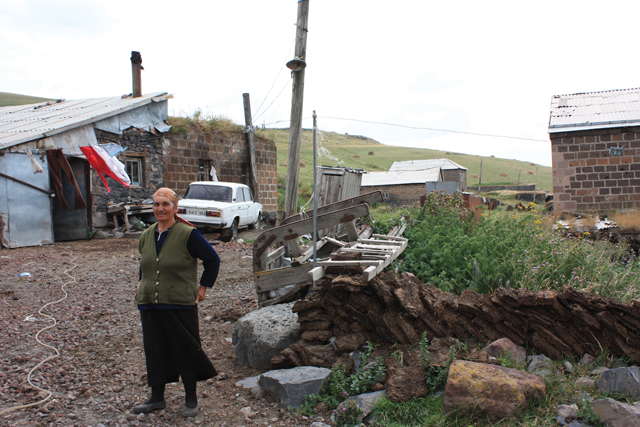
The following is an interview recently conducted with a Javakhktsi Armenian. Although the conditions here have been reported in different ways at different times, we found that there is a paucity of firsthand accounts given by those living in the region itself. We hope that through this interview, we will be able to amplify the voices of our fellow Armenians in a way not possible for them in their present situation.
QUESTION: Let’s begin with a simple but important question. What is Javakhk and where is it located?
ANSWER: The name Javakhk can be understood in two ways. Samtskhe-Javakheti is a province within the Republic of Georgia in the South Caucasus – an administrative division. But Javakhk is also understood as a smaller region in the southeastern corner of the country – an historical entity.
The name Javakhk is a phonetic derivative of Zabakha, a name used since the 9th century BC. The region was ruled by Armenians, Iranians, Iberians and others over the centuries, always maintaining its Armenian identity. During the time that the Kingdom of Armenia existed – that is, from 200 BC to 400 AD – Javakhk was part of the province of Gugark.
Moving on to the modern era, we find Javakhk being a battleground between the Persians and Ottomans for several decades until Ottoman hegemony over the area was established in 17th century. From that point onward, the population was subjected to massacre and forced conversion to Islam, but foreign immigration was so low that an Ottoman census shows the majority of the population remaining Armenian.
Soon afterward, it was annexed by Tsarist Russia and the Armenians of not only Javakhk, but Tbilisi as well, flourished economically and culturally.
Q: What is the Armenian population in the region?
A: Over half the population is ethnically Armenian, and the remaining 40% or so are largely Georgian, Turkish and Azerbaijani. The primary cities (Akhalkalak and Akhaldzkha) and many villages are almost exclusively Armenian; in Akhalkalak, for example, we make up 95% of the population. Outside of Samtskhe-Javakheti, an additional 200,000 live in the capital, Tbilisi.
Q: How would you summarize the major challenges faced by Armenians in Javakhk?
A: The biggest problem we have is with our youth, but there are political, social, religious and economic issues, too. The government puts great pressure on us to forget our language, our cultural treasures and to leave our homeland. Using Armenian is illegal here, for example.
We’re facing a growing age gap. A large portion of Javakhktsi youth leave for Yerevan to study and end up staying there after securing their diplomas. Those that don’t leave for Armenia pursue post-secondary education in Tbilsi and settle there, or immigrate to Russia to find work.
Here is another facet to the age problem: it’s normal for men and women here to get married between the ages of 18 and 21. So by the time they reach a point where they’ve attained the necessary amount of maturity and experience to be able to have a positive and meaningful impact on the region and its problems, they’re already preoccupied with securing a family. So the pool of young, capable Javakhktsis remains meager. We need to find ways of keeping them here and ameliorating the situation.
Q: You mentioned that the use of Armenian is illegal. So you can’t speak your mother tongue when you’re out on the street or in public?
A: No, we can speak it in the street, but legal documents have to be in Georgian – they can’t be in Armenian. We can’t import Armenian language newspapers into Javakhk; we are made to organize our own press, which requires funding. Because we’re an ethnic majority, we’re allowed to teach Armenian in our schools, but the number of hours of Armenian-language class has been decreased from 8 hrs per week roughly 6 years ago to only 4 hours this coming term, while the length of Georgian classes has increased. There was a law passed recently mandating that all schools be renamed to follow a generic numbering system; so a school that was called Haik Nahabed Secondary School may now be known as Georgian Secondary School Number 13. In this way, they lose their connection with their fundamental Armenian identity. The use of imported Armenian-language texts is barred; instead, the government has decided we’re to use books translated from Georgian by them. But the translations are so inaccurate that they sometimes don’t make sense. So how are our sons and daughters supposed to learn? Those that teach Armenian are underpaid, too, thereby discouraging people from pursuing that career path. They’re playing a zero-sum game here; they’re not only making it harder for our Armenian teachers to work, they’re also making it so that there is increased demand for Georgian teachers to take their place.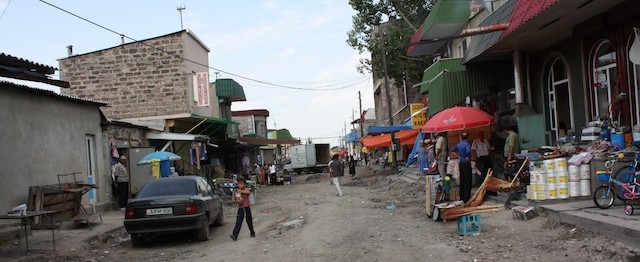
Q: What types of religious problems are there here?
A: What we see in Javakhk is a clear attempt at erasing the Armenian character of our churches, which have been here for centuries. They destroy or remove cross stones (khachkars) and the Armenian writing engraved on church walls, then seek to Georgify them by bringing the building under the ownership of the Georgian Orthodox Church. Clerics will come and announce to the village that this is now a Georgian church, etc.
Our Church currently operates outside the proper legal framework in Georgia. It does not have any de jure legitimacy here because the government does not accredit it the proper legal recognition it deserves. These are our major problems.
Are steps being taken to afford our churches proper de jure standing, or is that something that has already been tried and failed?
That’s unfortunately something our religious leaders here would be able to answer in greater detail than I.
Q: If they’re able to completely erase the Armenian character of the churches, what would the consequences be for the Armenians living here?
A: If this were to happen, we would become witness to the same situation we see in Western Armenia, which has been taken from us. Javakhktsis consider themselves a people indigenous to this region. It’s well known that there were waves of immigration in the 1830s and 1840s, but there was a large population living here before then.
Today’s Georgian historians give us a different official account than their Armenian counterparts and these may be interpreted as two subjective readings of history. But the physical things we see around us have to bear witness to the truth, right? And what we see is that in the 5th century, Armenian churches were built. So there was Armenian life here, an Armenian faith. This is what we see. And we haven’t even spoken out our fortresses and walled cities yet, which further solidify this “version” of history as the truth.
Q: And despite the fact that the majority of the population is Armenian, you aren’t able to make your way into the political arena to solve these issues?
A: There are a small number of Armenians in local government, but it appears that that’s not sufficient. They only represent 10% of the governing body and aren’t able to bring about meaningful change through the positions they occupy. The true power lays higher up, at echelons we don’t have access to.
Q: So, at the federal level.
A: Yes, at the federal level.
Q: Although all these problems exist, it seems that the Georgian government hasn’t made a clear effort at keeping Javakhk underdeveloped the way we see in southeastern Turkey, for example. The roads are well-paved, there is running water and there are new construction projects all around. These are things that even Armenians living in Armenia don’t always have. What explanation is there for this dichotomy?
A: Look, we are living, after all, in the 21st century. The days of not having running water or electricity are behind us. But there are several important points to make here.
The primary land routes linking Georgia to Turkey and Armenia run through Javakhk, so keeping the roads in good repair is an important economic asset to Tbilisi. The country also received $300 million as part of the US’ Millennium Challenge program. A third of this amount was earmarked for road repair projects between the capital and the borders with Turkey and Armenia.
So, yes, you’re correct in noting that there is a good deal of active construction work in Javakhk, but the companies that are granted these long-term projects are usually either Turkish or Azerbaijani and hire their workforces out of those countries. These laborers then sponsor their families to join them and end up settling here. All this happens while Javakhktsis have to emigrate in order to secure an income, thereby weakening our majority in the region.
Q: What has the Diaspora’s role been in Javakhk and in what new ways can the Diaspora help?
A: Unfortunately, we haven’t seen the same level of interest in and support for Javakhk that we’ve been seeing for Artsakh.
Moving forward, the Diaspora can put the Javakhk issue on the agendas of many different organizations and countries around the world. There are always attempts at silencing this issue when it arises on the international stage and the Diaspora can oppose that. You can also help us overcome our national, religious and socio-economic hurdles. And most importantly, our linguistic and cultural issues.
We are trying to claim our rights in Javakhk. According to the Congress of the Council of Europe [in which Georgia holds five seats], as a national minority and as an ethnic majority in Samtskhe-Javakheti, our language must be given official status. Georgian will remain the official language of the Republic, but Armenian must become a recognised second language. Especially seeing as how our schools are losing their Armenian character and it’s becoming increasingly difficult to teach Armenian to our children, this is very important.
Q: Considering Javakhk is not part of the Republic of Armenia, do you consider yourself a Diasporan?
A: No. If you called a Javakhktsi on the street a spyurkahye, they would probably consider it an insult. The word spyurk doesn’t even fit in Javakhkahye… Javakhkaspyurkahye? It’s awkward, it doesn’t make sense. We don’t accept that label.
Here is a concrete example I can use to demonstrate. When the Republic of Armenia’s Diaspora Ministry wanted to organize an event here, we refused their invitation. Look, let them send their Committee of Physical Education and Sports or something different; we would be more than happy to accept their help. But not the Diaspora Ministry. We’re not Diasporans. We’re an ancient people living on historically Armenian soil, regardless of what the Georgian government says. This is a part of Armenia and we’re Armenians. We’re not part of the present Republic, but this is still Armenia. We’re not Diasporans.
Q: Thank you for your time so far. Do you have any thoughts you would like to share in lieu of closing remarks?
A: Simply that our nation must remain united, because if history has taught us anything, it’s that when Armenians stand united, we have the power to solve problems in ways that are beneficial to us, not others.

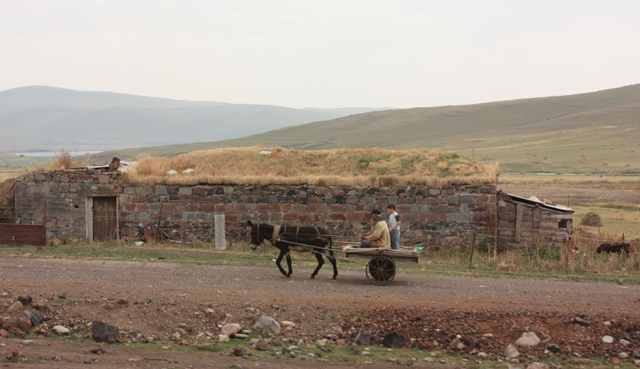

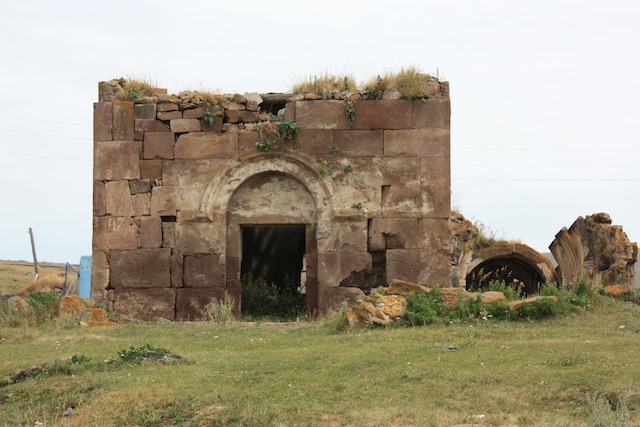
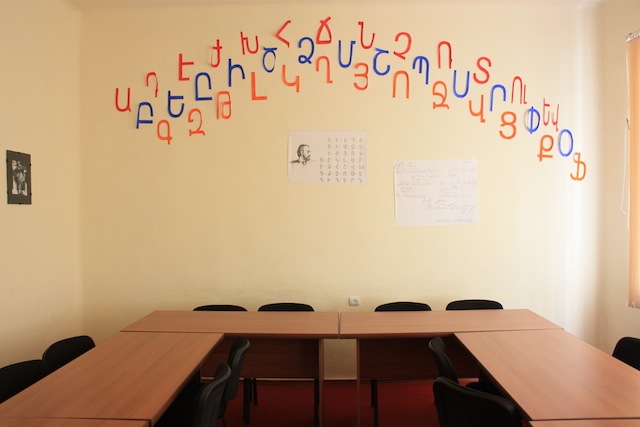
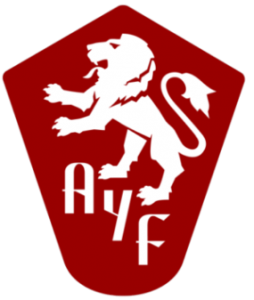
Leave a Reply
Want to join the discussion?Feel free to contribute!